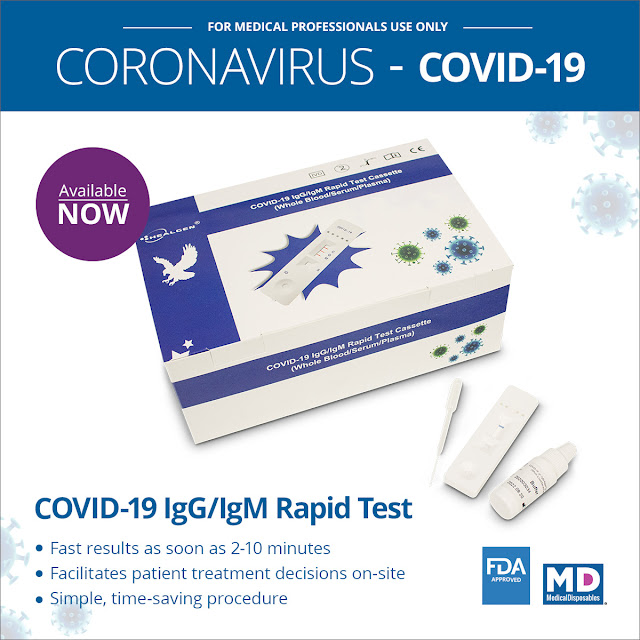Coronavirus (COVID-19)
Here at Medical Disposables Corp, we care about you and your loved ones, and we are always aiming to bring the most authentic products and trustworthy information. Coronavirus Disease 2019, also known as COVID-19, there is currently no preventive vaccine. But here are recommended practices by the Centers for Disease Control and Prevention (CDC) and World Health Organization (WHO) to help you protect yourself and everyone around you from spreading.
First, you need to know how it spreads:
- This virus can spread mainly from person-to-person.
- Between people who are in close contact with another (within about 6 feet).
- Also, respiratory droplets produced when an infected person coughs or sneezes. These droplets can land in the mouths, noses, or even be inhaled into the lungs by the people nearby.
Now that you learn how it spreads, this next steps would help protect yourself:
- HANDS, Wash Them Often
Washing your hands for at least 20 seconds or use of hand sanitizer that contains at least 60%
alcohol, especially after been exposed to public places, or after coughing, sneezing, or blowing your nose. By following good respiratory hygiene, you protect the people around you from viruses such as cold, flu, and COVID-19.
alcohol, especially after been exposed to public places, or after coughing, sneezing, or blowing your nose. By following good respiratory hygiene, you protect the people around you from viruses such as cold, flu, and COVID-19.
- ELBOW, Cough Into It
Droplets spread the virus, that's why you can help prevent the spread by covering your mouth and nose with a tissue or using your elbow after sneezing or coughing. Used tissues need to be throw in the trash, and washing your hands with soap and water needs to be done immediately.
- FACE, Don't Touch It
Your hands touch many surfaces and can pick up viruses. Once contaminated, hands can transfer the virus to your eyes, nose, or mouth. That's how the virus can enter your body and can make you sick.
- FEET APART, Stay More Than 3 to 6 feet apart
Avoid close contact with people who are sick. When someone coughs or sneeze, they spray small liquid droplets from their mouth and nose, which may contain the virus. If you are too close, you can breathe in the droplets.
- FEEL SICK? Stay Home
Except to get medical care, stay home if you have any symptoms. If you have fever, cough, and breathing difficulties, seek medical attention, and call in advance. Calling in advance will allow your health care provider to direct you to the right health facility quickly.
For More Information Seek this Valuable Sources:
Centers for Disease Control and Prevention








cleaning service of COVID is beneficial in usa like disinfectant cleaning services
ReplyDeleteA side guard on the tool allows you to get in close around your plants and avoid damage. weed removal tool
ReplyDeleteNice & informative article, I highly appreciate your efforts, we provide the best Poppers online in US.
ReplyDeleteThanks for sharing this article here about the Your article is very informative and I will share it with my other friends as the information is really very useful. Keep sharing your excellent work.buy k2 spice
ReplyDelete